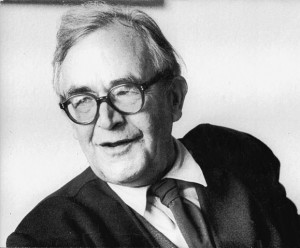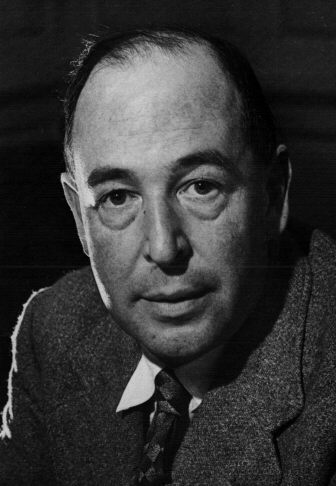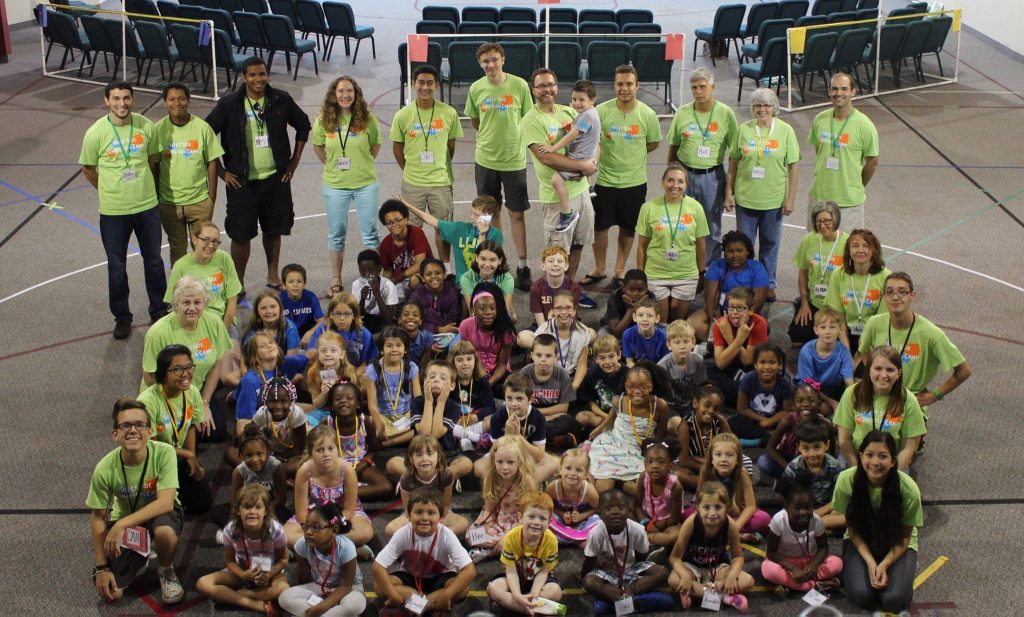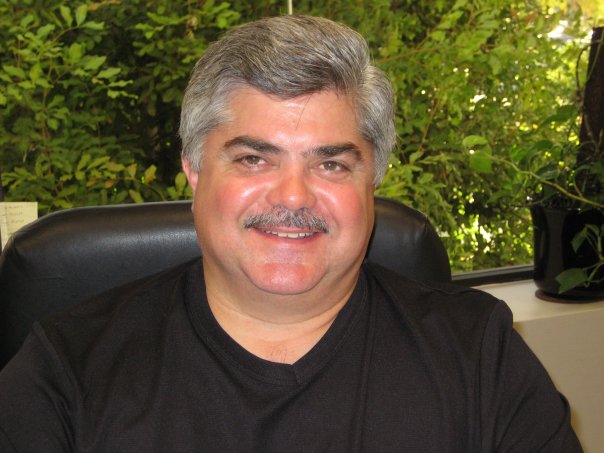Dear Brothers and Sisters,
 I guess we’ve all experienced times of desperation when we cried out to God to intervene. Perhaps we prayed for a miracle, only to find that our prayer was seemingly to no avail when the miracle did not come. But I also guess most of us have experienced the joy of seeing the healing of a person we prayed for. I know a lady, who following prayer for her healing, had her missing rib grow back. The doctor told her, “Whatever you’re doing, keep doing it!” Many of us, I’m sure, have been comforted and encouraged knowing others are praying for us. I’m always encouraged when people tell me they’re praying for me. In reply I usually say “Thanks, I’ll take all the prayer I can receive!”
I guess we’ve all experienced times of desperation when we cried out to God to intervene. Perhaps we prayed for a miracle, only to find that our prayer was seemingly to no avail when the miracle did not come. But I also guess most of us have experienced the joy of seeing the healing of a person we prayed for. I know a lady, who following prayer for her healing, had her missing rib grow back. The doctor told her, “Whatever you’re doing, keep doing it!” Many of us, I’m sure, have been comforted and encouraged knowing others are praying for us. I’m always encouraged when people tell me they’re praying for me. In reply I usually say “Thanks, I’ll take all the prayer I can receive!”
A misguided approach

Whether our experiences with prayer have been negative or positive (and we’ve likely had both), it’s important to remember Karl Barth’s observation: “The most certain element of our prayer is not our requests, but what comes from God: His response” (Prayer, p. 66). But it’s easy to misinterpret God’s responses to our prayers when he does not answer the way we expected. It’s easy to fall prey to the mistake of viewing prayer as a mechanical process—treating God as if he was a cosmic vending machine where we submit our requests and he automatically gives us the desired “product.” This misguided approach, which is little more than an attempt to bribe God, often involves using prayer as a way to gain control of situations we’re powerless to control.
The purpose of prayer

Prayer isn’t about trying to get God to do something that he doesn’t want to do—it’s about joining God in what he is doing. Prayer isn’t about trying to control God—it’s about acknowledging that God has everything under his control. Barth explained it this way: “To clasp the hands in prayer is the beginning of our uprising against the disorder of the world.” In making this statement, he was acknowledging that we who are not of the world are, in prayer, joining God in his mission to the world. Rather than taking us out of the world (with all its disorder), prayer joins us to God and to his mission to save the world.
Because God loves the world, he sent his Son into the world, and when we pray with minds and hearts open to God’s will, we are placing our trust in the One who loves the world and loves us—the One who can see the end from the beginning and who can help us see that this present, mortal life is the beginning, not the conclusion. That sort of prayer helps us see that the world is not as God wants it, and it changes us so we can be agents of hope here and now in God’s present, unfolding kingdom.
When the opposite of what they pray for occurs, some people leap to the deistic conclusion that God is distant and uninvolved. Some even abandon belief in God altogether. Such was the case for Michael Shermer, founder of the Skeptic’s Society. He lost faith in God when his college sweetheart was severely injured in an automobile accident. With a broken back and paralysis from the waist down, she was permanently confined to a wheelchair. Michael believed that because she was a really good person, God should have answered prayers for her healing.
God is in control

Rather than being a way to control God, prayer is humble acknowledgment that God is in control and we are not. In his book, God in the Dock, C.S. Lewis explained it this way:
Most of the events that go on in the universe are indeed out of our control, but not all. It is like a play in which the scene and the general outline of the story is fixed by the author, but certain minor details are left for the actors to improvise. It may be a mystery why He should have allowed us to cause real events at all, but it is no odder that He should allow us to cause them by praying than by any other method. [Christian philosopher Blaise] Pascal says that God “instituted prayer in order to allow His creatures the dignity of causality.” It would perhaps be truer to say that He invented both prayer and physical action for that purpose. He gave us small creatures the dignity of being able to contribute to the course of events in two different ways. He made the matter of the universe such that we can (in those limits) do things to it; that is why we can wash our own hands and feed or murder our fellow creatures. Similarly, He made His own plan or plot of history such that it admits a certain amount of free play and can be modified in response to our prayers. If it is foolish and impudent to ask for victory in war (on the ground that God might be expected to know best), it would be equally foolish and impudent to put on a [raincoat]—does not God know best whether you ought to be wet or dry?
Why pray?
Noting that God ordained prayer as a way for us to commune with him, Lewis explained in his book Miracles that God already has accounted for our prayers. The question then is this: Why pray? Lewis replies:
When we are praying about the result, say, of a battle or a medical consultation the thought will often cross our minds that (if only we knew it) the event is already decided one way or the other. I believe this to be no good reason for ceasing our prayers…. The event certainly has been decided—in a sense it was decided “before all worlds.” But one of the things taken into account in deciding it, and therefore one of the things that really cause it to happen, may be this very prayer that we are now offering.

Did you get that? God may be “answering” in response to a prayer he already knew you were going to pray. The ramifications of this are both thought-provoking and exciting. It tells us that our prayers are important; they matter. Lewis continues:
Though shocking as it may sound, I conclude that we can at noon become part causes of an event occurring at ten a.m. (Some scientists would find this easier than popular thought does.) The imagination will, no doubt, try to play all sorts of tricks on us at this point. It will ask, “Then if I stop praying can God go back and alter what has already happened?” No. The event has already happened and one of its causes has been the fact that you are asking such questions instead of praying. Thus something does really depend on my choice. My free act contributes to the cosmic shape. That contribution is made in eternity or “before all worlds”; but my consciousness of contributing reaches me at a particular point in the time-series.
Prayer matters
What Lewis is saying is that prayer matters—it always has and always will. Why? Because our prayers give us opportunity to join God in what he has done, is doing, and will do. Though we don’t understand all the ramifications of how science, God, prayer, physics, time and space, and things like quantum entanglement and quantum mechanics all work together, we know that God has determined such matters. Further, we know he has invited us to participate in what he is doing. Prayer is a big part of that participation.
As I pray, I often think of myself handing over or entrusting my prayers to God, knowing that, somehow, he will take and weave them into his good purposes, one way or another. I believe that God works together all things (including our prayers) for good in accordance with his glorious purposes. I’m also reminded that whenever we pray we are joining Jesus, our great High Priest, in his prayers of intercession. He takes our prayers, sanctifies them and shares them with the Father and the Holy Spirit. For that reason, I don’t believe there is ever an unanswered prayer. Our prayers join our Triune God in his will, purpose, and mission—much of which was determined before the foundation of the world.
While I can’t explain exactly why prayer matters, I trust God that it does. Therefore I’m encouraged when I hear that people are praying for me, and I hope you are encouraged knowing that I pray for you. I’m not doing so to try to control God, but to express my praise for the One who has all things under control.
Grateful that God is in control and that prayer matters,
Joseph Tkach
PS: For a previous Weekly Update letter on the practice of prayer, click here.


